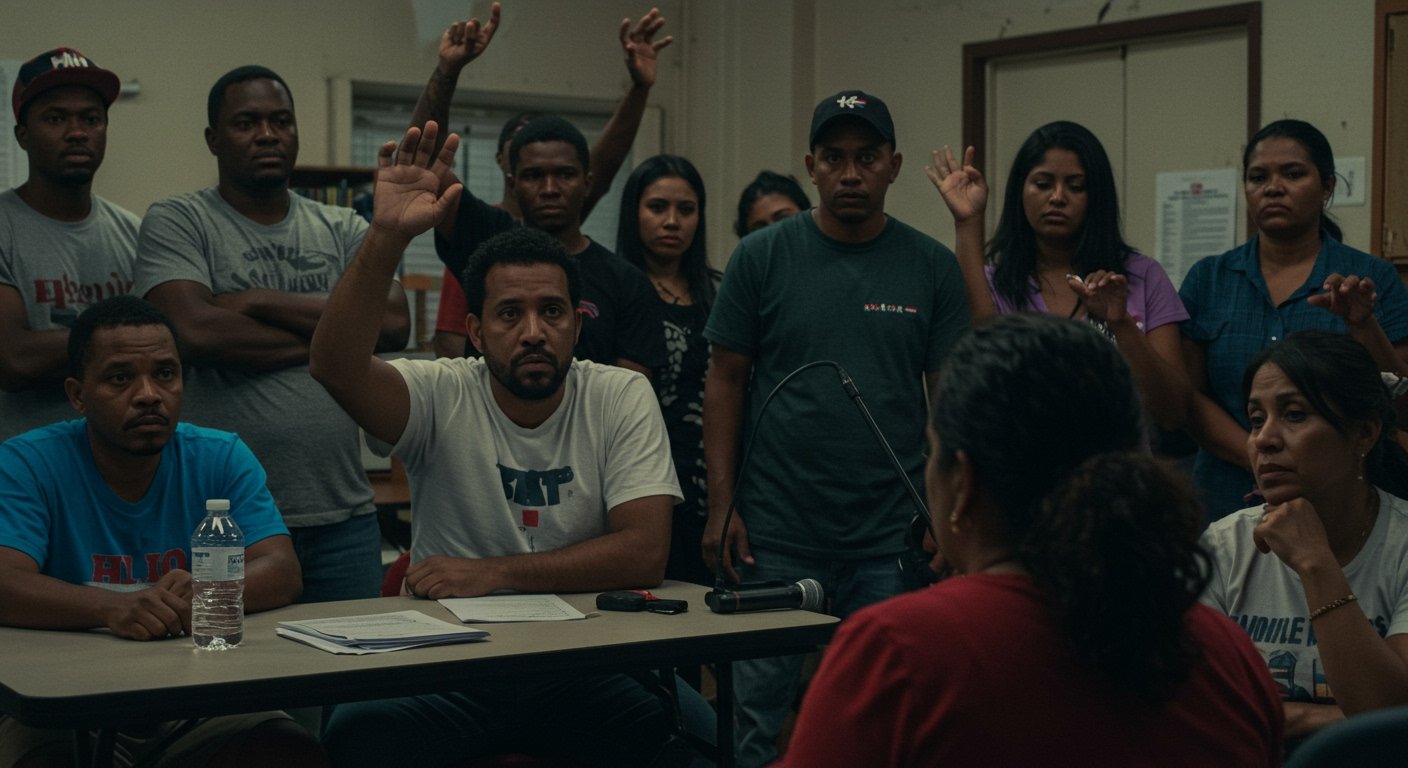NORTH MIAMI, FL – Community leaders and residents in North Miami are preparing to convene for a crucial town hall meeting scheduled for Sunday, June 29, 2025. The central focus of the gathering is the far-reaching implications of the Trump administration’s decision to revoke Temporary Protected Status (TPS) for an estimated 500,000 Haitians residing in the United States.
The decision, which carries the potential to subject a substantial population to deportation, has ignited significant concern and calls for action within the Haitian diaspora and broader immigrant rights communities. The North Miami meeting serves as a vital forum for disseminating information, coordinating responses, and providing support to those directly affected by the policy shift.
Understanding the Impact
The revocation of TPS fundamentally alters the legal standing of approximately 500,000 Haitians who have been living and working legally in the U.S. under this designation. For many, the United States has been home for years, often decades, following the designation of Haiti for TPS after the devastating 2010 earthquake. The loss of this status means the loss of work authorization and protection from deportation, casting a shadow of uncertainty over hundreds of thousands of lives and families integrated into American society.
The town hall intends to bring together affected individuals, legal experts, advocates, and elected officials to discuss the practical consequences of the policy and explore potential avenues for relief or mitigation. Discussions are expected to cover everything from legal challenges and advocacy efforts to community support networks and resources for those facing potential removal.
The Administration’s Rationale
The Department of Homeland Security (DHS) has articulated its justification for terminating Haiti’s TPS designation, stating the move “restores integrity in our immigration system and ensures that temporary protective status is actually temporary.” The department also asserted that environmental conditions in Haiti have sufficiently improved, making it safe for citizens to return. This perspective stands in stark contrast to the views of many advocates and Haitians themselves, who point to ongoing political instability, economic challenges, and infrastructure deficiencies in Haiti.
TPS is a temporary immigration status granted to eligible nationals of designated countries who are unable to return safely to their home countries due to conditions such as ongoing armed conflict, environmental disasters, or other extraordinary and temporary conditions. Haiti was one among 17 countries whose citizens held these protections before President Donald Trump began his second term in January.
Historical Context and Renewed Challenges
This is not the first time the Haitian community has faced the threat of TPS termination under the Trump administration. A similar attempt was made in 2017. That effort was met with robust resistance from the Haitian community and its allies, including significant public demonstrations and extensive litigation. These legal challenges temporarily halted the administration’s planned termination, offering a reprieve to those affected.
However, the current situation is described by observers as significantly different from the 2017 challenge. It is widely viewed as being deeply connected to the administration’s broader, more assertive immigration enforcement efforts across various fronts. The legal landscape and the administration’s posture on immigration policy have evolved, potentially presenting new hurdles for those seeking to challenge the current revocation.
Broader Implications
The potential removal of 500,000 individuals would represent one of the largest single immigration enforcement actions against a specific national group in recent U.S. history. Beyond the humanitarian concerns for the individuals involved, the economic and social ramifications for communities like North Miami, which have large Haitian populations, could be considerable. The loss of a significant workforce and contributing members of society poses challenges for local economies and social structures.
Advocates argue that forcing individuals to return to Haiti, a nation grappling with complex internal issues, raises significant ethical questions and potentially exacerbates challenges both in the U.S. and in Haiti. The town hall meeting is anticipated to explore strategies for navigating these complex legal and humanitarian dimensions.
A Community United
The North Miami town hall on Sunday, June 29, 2025, represents a convergence point for a community grappling with profound uncertainty. It is a testament to the resilience and organizational capacity of the Haitian diaspora in the U.S. as they mobilize to understand, respond to, and potentially challenge the administration’s decision. The outcomes of this meeting and subsequent actions will be closely watched by immigrant communities and policymakers nationwide.





